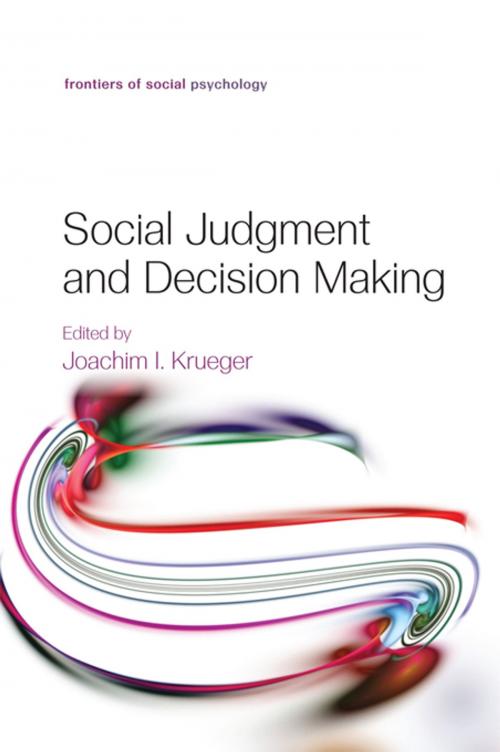| Author: | ISBN: | 9781136988578 | |
| Publisher: | Taylor and Francis | Publication: | May 4, 2012 |
| Imprint: | Psychology Press | Language: | English |
| Author: | |
| ISBN: | 9781136988578 |
| Publisher: | Taylor and Francis |
| Publication: | May 4, 2012 |
| Imprint: | Psychology Press |
| Language: | English |
This volume brings together classic key concepts and innovative theoretical ideas in the psychology of judgment and decision-making in social contexts. The chapters of the first section address the basic psychological processes underlying judgment and decision-making. The guiding question is "What information comes to mind and how is it transformed?" The second section poses the question of how social judgments and decisions are to be evaluated. The chapters in this section present new quantitative models that help separate various forms of accuracy and bias. The third section shows how judgments and decisions are shaped by ecological constraints. These chapters show how many seemingly complex configurations of social information are tractable by relatively simple statistical heuristics. The fourth section explores the relevance of research on judgment and decision making for specific tasks of personal or social relevance. These chapters explore how individuals can efficiently select mates, form and maintain friendship alliances, judiciously integrate their attitudes with those of a group, and help shape policies that are rational and morally sound. The book is intended as an essential resource for senior undergraduates, postgraduates, researchers, and practitioners.
This volume brings together classic key concepts and innovative theoretical ideas in the psychology of judgment and decision-making in social contexts. The chapters of the first section address the basic psychological processes underlying judgment and decision-making. The guiding question is "What information comes to mind and how is it transformed?" The second section poses the question of how social judgments and decisions are to be evaluated. The chapters in this section present new quantitative models that help separate various forms of accuracy and bias. The third section shows how judgments and decisions are shaped by ecological constraints. These chapters show how many seemingly complex configurations of social information are tractable by relatively simple statistical heuristics. The fourth section explores the relevance of research on judgment and decision making for specific tasks of personal or social relevance. These chapters explore how individuals can efficiently select mates, form and maintain friendship alliances, judiciously integrate their attitudes with those of a group, and help shape policies that are rational and morally sound. The book is intended as an essential resource for senior undergraduates, postgraduates, researchers, and practitioners.















